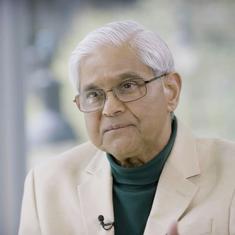For just the second time in the history of the women’s World Cup, there will be female coaches on both benches for the final as Sarina Wiegman’s Netherlands take on holders the United States, coached by Jill Ellis, on Sunday.
Only nine of the 24 teams present at this year’s tournament were coached by women, but the work done by Wiegman and Ellis has ensured the first final without a man on either bench since 2003.
Ellis, 52, led the USA to glory in Canada four years ago and can become the first coach to win back-to-back World Cups in the men’s or women’s game since Vittorio Pozzo with Italy in the 1930s.
Wiegman, meanwhile, is hoping the Netherlands can add the World Cup to the European Championship they won as hosts in 2017.
That would be a remarkable achievement for someone who, like Ellis, has a schooling in soccer in the US to thank for her career trajectory.
‘100 percent American’
Seen as having an uncompromising management style, there can be no arguing with Ellis’s results, with the USA winning the 2015 World Cup and now becoming the first team to reach three consecutive finals.
Ellis had various roles in the national team set-up before becoming coach in 2014 and seizing the chance to deliver glory to the country that provided her with an opportunity in the game.
The daughter of a Royal Marines commando, Ellis was born and raised in Portsmouth in southern England at a time when football was very much considered a man’s game in Britain. She moved across the Atlantic as a teenager.
“I’d had zero opportunity to play football over here, so that is really what America gave me,” she said before the USA defeated England in the semi-finals.
Of her British upbringing, the Manchester United fan added: “My whole British culture growing up, still I think is with me for sure and I am very grateful for that because had I grown up in another country, maybe the passion for football would not be where it is.”
While a hint of an English accent remains, Alex Morgan describes her boss as “100 percent American” now.
Her team are overwhelming favourites to retain their title, but standing in her way is another woman who learned much in women’s college soccer in the late 1980s
‘Women need guts’
It is three decades since Wiegman jumped at the chance given to her by Anson Dorrance to go and play at the University of North Carolina.
“The year I spent there changed my life,” she said in an interview with The Coaches’ Voice website.
Before that, as a girl, she has said that she had to cut her hair short to blend in playing with boys in The Hague.
Dorrance led the USA to glory in the first women’s World Cup in 1991. Wiegman, meanwhile, went on to become the first Dutch footballer to win 100 caps.
However, women’s football in the Netherlands was slow to develop and she was working as a PE teacher before becoming full-time coach of ADO Den Haag in 2007.
In 2014 she became an assistant to the Dutch national team before taking over as head coach six months before the Netherlands hosted Euro 2017.
Under her, the Dutch have won 12 games out of 12 at major tournaments. Her team’s fighting spirit is something she says comes from her American experience.
“The American culture is very much about hard work and that is different to our culture,” she said after beating Sweden in the semi-finals.
“If you want to win from a country like that, you need to fight and you need to position yourself and battle it out.”
Wiegman also said “women need to have the guts to make choices and take risks to go for higher positions”.
That attitude has paid off handsomely for her, and it is something of which her players are proud.
“Seeing there are two coaches leading the women’s teams to the final, that’s something incredible and something they can be really proud of,” said defender Dominique Bloodworth.










